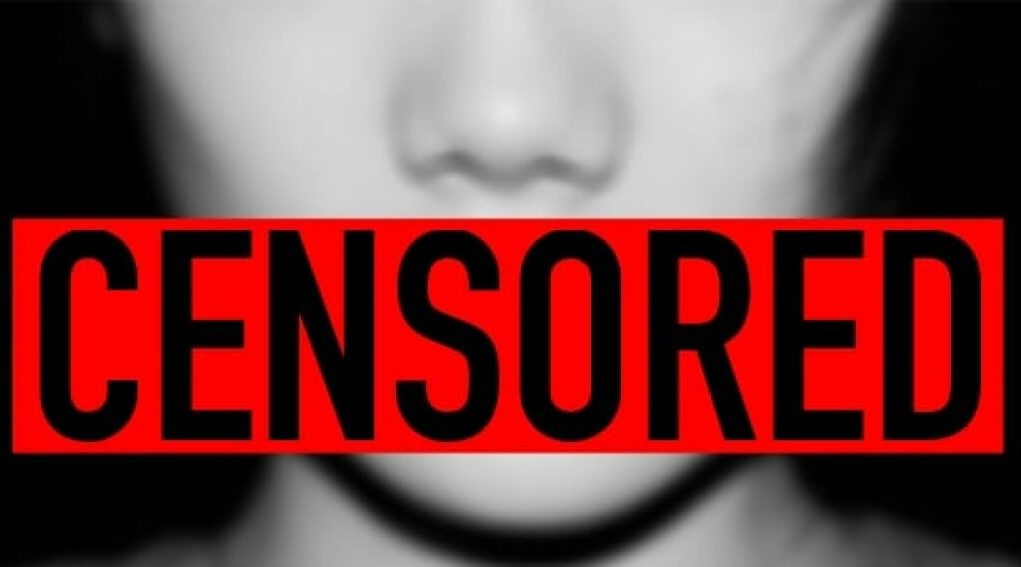In a democratic society, freedom of speech is an essential human right that enables the contest of ideas, intellectual debate, and societal progress. However, recent years have revealed a disturbing trend: those in power view free speech as a threat to their control and a hindrance to their plans.
Nowhere is this more apparent than on social media platforms, where the censorship of free speech has become alarmingly prevalent. This encroachment upon a fundamental right poses a significant danger to democracy itself.
Limitations on free speech should, at a minimum, be reasonable, necessary, and proportionate. They must be applied impartially and without discrimination. While certain grounds for restricting speech, such as threats of harm or incitement to violence may be justified, they must be carefully balanced to safeguard individual rights.
However, we find ourselves now in a climate of confusion regarding what constitutes harm or violence. Certain speech, labelled as hate speech or even violence, has become subject to arbitrary interpretation.
As a consequence, freedom of expression is stifled as people fear punishment for expressing dissenting views. The broadening of definitions and the ensuing uncertainty lead to self-censorship, allowing governments to exploit this confusion and control the speech of those with differing opinions, thereby eroding the very foundations of democracy.
In addition to limiting freedom of expression, certain ideologies go even further, seeking to compel speech. The transgender movement and debates over the definition of womanhood exemplify this. Individuals are pressured to use specific pronouns chosen by others, forced to disregard their own reality and life experiences. Threats of de-platforming, de-monetisation, or denial of basic services like banking contribute to an environment of fear and self-censorship. Prominent figures including Robert F. Kennedy Jr., Jordan Peterson, and Nigel Farage, have faced punitive measures for expressing the wrong opinions. These examples serve as a warning to anyone who dares challenge the government narrative.



Western societies currently grapple with censorship on social media platforms. Elon Musk’s advocacy for free speech on Twitter has faced intense backlash, prompting governments to enact legislation aimed at curtailing it. The Online Safety Act 2021 in Australia and the Digital Service Act in the European Union, for example, threaten fines of up to 6 percent of annual revenue. The USA’s Restrict Act threatens imprisonment for up to 20 years. These laws exemplify an authoritarian approach to controlling information and stifling public discourse. In contrast, Mark Zuckerberg’s launch of Threads, a platform designed to restore online censorship, has received biased media coverage, painting it as a positive move. This skewed portrayal, labelling free speech as a right-wing ideology rather than a fundamental human right, highlights the distorted narrative being propagated.
Renowned leftist Russell Brand has emerged as a champion for the restoration of free speech. Brand’s realisation that free speech transcends political ideologies and is a fundamental right offers a glimmer of hope. He, along with other content creators, has had to resort to self-censorship on platforms like YouTube to avoid de-platforming or demonetisation. They have sought refuge on platforms such as Rumble, the “Home of Free Speech,” where open discussion on previously taboo topics is encouraged. Such a shift to alternative platforms demonstrates the need for a free market in spaces that prioritise and protect free speech.

A recent event, the Censorship Industrial Complex, hosted by Brand, Matt Taibbi, and Michael Shellenberger, shed light on the issue of censorship on social media platforms. The deliberate practice of self-censorship, designed to pre-empt dangerous thoughts, has been exposed. Stanford University’s involvement in guiding social media platforms on COVID-19 further reveals the collusion between governments and tech companies in silencing dissenting voices, undermining democratic principles, and hindering informed decision-making.
The actions taken by governments, social media platforms, and the media to stifle dissent and impose censorship present an imminent threat to democracy.
Transparent, reasonable and impartial laws are needed to safeguard our fundamental rights. It is imperative that governments respect the rights of individuals to express their opinions, irrespective of whether they challenge prevailing narratives.
In addition, individuals and content creators should actively support and embrace alternative platforms that prioritise free speech, such as Rumble. By rejecting self-censorship and promoting platforms that uphold the principles of free speech, we can reclaim our right to express ourselves without fear of retribution. Together, we must stand united to protect the values that underpin our society and ensure that freedom of speech remains a pillar of our democracy.
Thank you for your support. To help us in our battle to protect liberty and freedom please click here

Jaimie Stevenson JD (Monash) is a legal consultant for Australian-based SMEs, specialising in technology, data, privacy and IP law. She is passionate about the rule of law, as opposed to arbitrary rules, and minimal government encroachment on the inherent rights of the
individual including freedom, autonomy and dignity.









